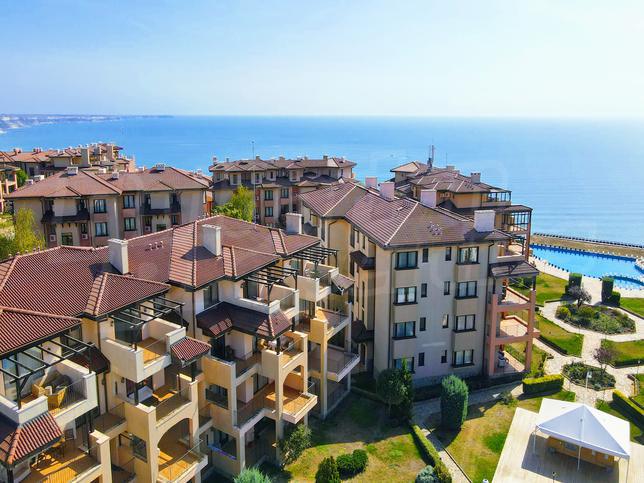Spain, located in southwestern Europe, is a dynamic country on the Iberian Peninsula, bordered by Portugal, France, and the Mediterranean Sea. Famous for its rich history, diverse culture, and stunning landscapes, Spain offers a unique blend of ancient and modern attractions. The country is a constitutional monarchy with a parliamentary democracy, and Madrid is its capital and largest city.
Spain boasts a variety of climates and terrains, from the sunny beaches of Costa del Sol to the snowy peaks of the Pyrenees. Its cultural heritage includes world-famous art, architecture, and cuisine, with influences from Roman, Moorish, and Christian civilizations. Iconic landmarks such as the Alhambra, Sagrada Família, and Camino de Santiago highlight its historical depth.
Famous for flamenco music, tapas, and festivals like La Tomatina and Feria de Abril, Spain excels in sports, particularly football. The nation’s laid-back lifestyle, Mediterranean diet, and dynamic cities make it a famous destination for tourists and expats.
How do you become a real estate agent in Spain?
Becoming a real estate agent in Spain involves meeting certain requirements, acquiring the necessary skills, and understanding the Spanish real estate market. Here’s a thorough step-by-step guide:
Understand the Role of a Real Estate Agent in Spain
A real estate agent in Spain facilitates the buying, selling, or renting properties. Compared to other European countries, the profession is not heavily regulated, meaning you don’t necessarily need a license, but expertise, credibility, and market knowledge are essential.
Fulfill Basic Requirements
- Age: You must be at least 18 years old.
- Residency: Be a resident or have the legal right to work in Spain (EU citizens do not need a work visa; non-EU citizens will require a visa or work permit).
- Language Proficiency: While not mandatory, fluency in Spanish and English is highly beneficial since you’ll be working with diverse clients.
Obtain Real Estate Training
While not mandatory, training significantly boosts your credibility and skills.
Courses and Certifications:
- Enroll in a real estate training course offered by institutions like:
- Spanish Association of Real Estate Experts (Asociación Española de Personal Shopper Inmobiliario – AEPSI).
- Schools specializing in real estate, such as CEU or EAE Business School.
- Popular courses include:
- Real estate marketing.
- Spanish property law (urban planning regulations, contracts, etc.).
- Sales and negotiation techniques.

Professional Accreditation (Optional but Valuable):
- Consider getting certified as a real estate agent through reputable organizations like API (Agente de la Propiedad Inmobiliaria). APIs are officially recognized agents under Spanish law.
- Becoming an API requires passing an exam and fulfilling specific educational requirements (usually a university degree or equivalent).
Register Your Business (Self-Employment or Agency)
If you plan to work independently:
- Self-Employment Registration:
- Register as a self-employed professional with the Spanish Tax Agency and Social Security system.
- This involves:
- Obtaining an NIE (Número de Identificación de Extranjeros).
- Registering with the tax authority (Modelo 036 or 037 form).
- Enrolling in Social Security (Regimen Especial de Trabajadores Autónomos).
If joining an agency:
- Apply directly to established real estate companies or franchises operating in Spain.
Build Knowledge of Spanish Property Law
Familiarize yourself with:
- Urban planning regulations.
- Tenant and landlord laws.
- Property transfer processes.
- Mortgage and financial systems.
This knowledge guarantees compliance with Spanish legal standards and avoids disputes.
 Develop Key Skills
Develop Key Skills
- Marketing and Networking: Learn how to market properties effectively through online platforms, social media, and personal networks.
- Negotiation: Create solid sales and client management skills.
- Tech Proficiency: Use tools like CRM (Customer Relationship Management) software and property listing platforms.
Gain Experience
- Begin by working with a real estate agency to build experience and connections.
- Engage in internships or trainee programs offered by larger agencies.
Establish Your Reputation
- Create a Portfolio: Showcase successful transactions and client testimonials.
- Build an Online Presence: Create a professional website and utilize property listing portals like Idealista, Fotocasa, or Habitaclia.
- Network Locally: Join local business groups and associations like API or AEPSI.
Insurance Requirements
Obtain professional liability insurance (seguro de responsabilidad civil) to protect against legal disputes or mistakes.
Stay Updated
The Spanish real estate market can be dynamic and influenced by economic and legal changes. Stay informed by:
- Reading market reports.
- Attending real estate seminars and workshops.
Following these steps, you can establish a career as a credible and successful real estate agent in Spain.
Frequently Asked Questions
What qualifications do people need to become a real estate agent?
To become a real estate agent, individuals typically need at least a high school diploma or equivalent and must complete specialized training in real estate. They must pass a licensing exam and satisfy legal criteria, such as legal age and having a clean criminal record. Strong communication, negotiation, and marketing skills and a strong understanding of property laws and market trends are essential. Practical experience, often gained through work with a real estate agency, is also important. Qualifications can vary depending on the specific country or region.
Do I need a license to sell real estate in Spain?
You do not need a formal license to work as a real estate agent in Spain. The profession is less regulated than in many other countries, so you can sell properties without obtaining specific certifications. However, gaining certifications from professional bodies like the API (Agente de la Propiedad Inmobiliaria) is highly recommended to enhance your credibility and professionalism. While not mandatory, these certifications can establish trust with clients and provide a competitive edge.
To operate legally, you must register as self-employed (autónomo) with the Spanish Tax Agency and Social Security. It is also advisable to obtain professional liability insurance to protect yourself against disputes. Understanding Spanish property laws, contracts, and local regulations is crucial to operate effectively in the market. Although you can start without a license, working with an agency initially can provide valuable training, resources, and support to help you succeed.
What are the main responsibilities of a real estate agent in Spain?
A real estate agent in Spain has several crucial responsibilities that revolve around facilitating property transactions and ensuring the process is simple for all parties involved. They serve as advisors to clients, offering guidance on the market, property values, and legal or financial considerations. Marketing properties is a central part of their work, which involves creating attractive listings, using platforms like Idealista or Fotocasa, and promoting properties through social media and local advertising.
Agents conduct property viewings, highlighting the home’s features and answering questions to help potential buyers or renters make informed decisions. Negotiating deals is another crucial task, as agents work to find terms that satisfy both buyers and sellers while ensuring fair pricing. They also prepare and review legal documents, such as contracts of sale or rental agreements, ensuring compliance with Spanish property laws.
A real estate agent collaborates with other professionals, including lawyers, notaries, and banks, to coordinate the transaction’s mortgages, title transfers, and other aspects. They may support clients by helping with utilities, renovations, or general settling-in tasks post-sale. To excel in their role, agents stay informed about market trends, national regulations, and economic conditions that influence real estate. These efforts assist clients navigate the complexities of buying, selling, or renting properties in Spain with professionalism and trustworthiness.
How do I start a real estate business in Spain?
To start a real estate business in Spain, decide on your business structure as a self-employed agent (autónomo) or a limited liability company (Sociedad Limitada, SL). Obtain an NIE, register your business with the Tax Agency and Social Security, and comply with tax obligations. Conduct market research to understand property trends and target your audience, whether local or international clients. Build a professional online presence, list properties on platforms like Idealista, and leverage social media for marketing. Network with local professionals and industry associations to enhance credibility. To ensure success, offer great service and stay informed about legal and market changes.
Is real estate profitable in Spain?
Yes, real estate in Spain can be highly profitable, depending on factors like market conditions, location, and your business strategy. Spain’s lively property market attracts both local and international investors, driven by its strong tourism sector, diverse landscapes, and desirable lifestyle.
In primary cities like Madrid, Barcelona, and Valencia, there is consistent need for residential and commercial properties, offering opportunities for sales, rentals, and property management. Coastal areas like the Costa del Sol, Alicante, and the Balearic Islands are hotspots for vacation rentals and second homes, often providing high returns due to year-round tourism.
While the market is generally lucrative, success depends on timing and strategy. Economic fluctuations, property taxes, and regulatory changes can affect profitability. Understanding market trends, offering exceptional service, and targeting clients are essential for maximizing income. Real estate in Spain can be a rewarding investment or career with the right approach.












